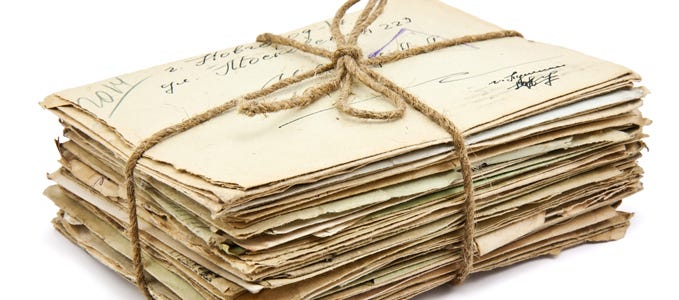The Endgame
Newsletter #75 - Readers write about Newsletter #74
Port Medway, Nova Scotia, August 4, 2024
Readers write about Newsletter #74 (on melancholy)
As close readers of last week’s Endgame will know, I spent most of this week away from my typewriter busy sampling the fleshpots of Halifax. Regular Endgame service will resume next Sunday, August 11. Meanwhile, here’s a sample of some interesting comments on #74 which discussed melancholy:
Eve McBride wrote: “Melancholy in aging is a ‘fine madness,’ not lunacy or psychosis but anger bent inward bringing highly-honed sensibilities and clarity of sight and sound… Melancholy in aging is about grappling with the enormous, persistent invasion of loss. It is the opposite of gladness. Rather it is about ‘a backward glance,’ an acute recognition of things that will never be again and a vision of the end.”
From Karen Bayly: “I’m twelve years younger than you but I feel much the same way. I lived through a time of promise and have fought for social change, against war, and for the environment. Forty plus years later and it feels like it was all for nothing. And worse still, those of us who fought are blamed for the state of the world. So, yes, I am melancholic. My health and energy are declining, and I have nothing left to give. And what I do have to give isn’t appreciated, anyway.”
Mireille wrote: “As someone who is generally upbeat and optimistic but suffers from melancholy on occasion, I can relate. While your friends and loved ones may want to cheer you up, sometimes it is good to accept and feel your feelings. Not all friends are always good at supporting us when we're low but that's okay too. Perhaps their own joy is fleeting and tenuous, or they don't have the strength to help you with your heavy emotions. Or they love you too much to watch you suffer. You can either seek comfort elsewhere, or in yourself. I find writing how I feel helps.”
Karin Turkington: “Weeping is an unadulterated expression straight from the body. Years ago when I lived in Ontario and was going through a difficult separation, I attended weekly yoga classes. The stillness and silence of the simple white studio space, in conjunction with body movements, and the particular teacher's non-judgemental acceptance of my quiet weeping throughout her class, made those Thursday noon hours a longed-for weekly retreat from my daily struggles. It was a safe place to just be, move, feel, and cry. We don't always know why we feel the way we do, nor do we need a reason. Understanding and empathy are the best friends of those feelings that our culture tends to avoid, hide, and repress. I have often found comfort in the writings of Jungian Analyst James Hollis, as well as Rumi's famous poem, The Guest House.”
Faye: “As so often happens, Philip, you write about a topic that is on my mind. As I see it, health events, aging realities and the profound ache of losing friends who were kindred spirits presents us with a challenge. The challenge of finding joy even through sadness is increasingly weaving its way into our emotional quilt. And just as importantly accepting that some days we will not meet that challenge.”
From Julian, my severest critic: “As we age, life narrows. Talk of your ailments limits the scope of conversation. It becomes the locomotive of what should be a gentle diversion.”
And, finally, the last word, from the irrepressible David Wolinsky: “I live thousands of miles away or I would come over and give you a good shaking.”



By any & all means, keep enjoying the fleshpots, lobster pots - whatever the Port & Atlantic have on offer. We can wait for you to unwind & rewind.